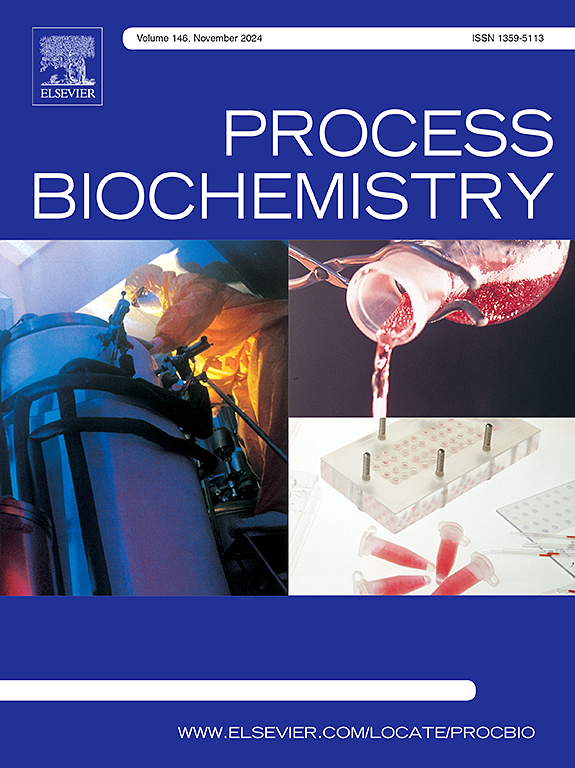A mechanistic insight into polyethylene degradation by Bacillus sp. and, Lysinibacillus sp. from mangrove soil
IF 4
3区 生物学
Q2 BIOCHEMISTRY & MOLECULAR BIOLOGY
引用次数: 0
Abstract
This study aims to establish a sustainable method for plastic remediation, particularly focusing on polyethylene (PE). Bacteria capable of breaking down PE were identified and characterized from plastic-contaminated mangrove soils in Mangalavanam and Puthuvype, where limited efforts had been made to explore PE-degrading microbes. Two isolates, Ma21 and Pu9, showed efficient PE degradation, which exhibited 7.8 % and 4.2 % weight loss of PE film respectively. This degradation was supported by FTIR analysis, indicating initial degradation steps, and FE-SEM analysis, showing surface deterioration of PE films due to bacterial action. GC-MS analysis of reaction intermediates detected phthalic acid compounds, suggesting the ability of these bacteria to degrade PE and indicating the presence of plastic additives in the degradation medium. Screening for biosurfactant production revealed that both Ma21 and Pu9 can produce biosurfactants. The production of alkane hydroxylase enzyme and laccase enzyme by Ma21 and Pu9 further supported their biodegradation capabilities. Molecular identification through 16S rDNA sequencing confirmed that Ma21 is Bacillus thuringiensis, and Pu9 is Lysinibacillus boronitolerans.
芽孢杆菌和赖氨酸芽孢杆菌从红树林土壤中降解聚乙烯的机理研究
本研究旨在建立一种可持续的塑料修复方法,特别是针对聚乙烯(PE)。从Mangalavanam和Puthuvype受塑料污染的红树林土壤中鉴定出能够分解聚乙烯的细菌,并对其进行了表征,这两个地区对聚乙烯降解微生物的研究有限。Ma21和Pu9对PE的降解效果较好,PE膜质量分别降低7.8% %和4.2% %。FTIR分析表明了这种降解的初始步骤,而FE-SEM分析表明,由于细菌的作用,PE薄膜的表面劣化。GC-MS分析反应中间体检测到邻苯二甲酸化合物,表明这些细菌降解PE的能力,并表明降解介质中存在塑料添加剂。生物表面活性剂的筛选表明Ma21和Pu9都能生产生物表面活性剂。Ma21和Pu9产生的烷烃羟化酶和漆酶进一步支持了它们的生物降解能力。通过16S rDNA测序进行分子鉴定,Ma21为苏云金芽孢杆菌,Pu9为硼溶杆菌。
本文章由计算机程序翻译,如有差异,请以英文原文为准。
求助全文
约1分钟内获得全文
求助全文
来源期刊

Process Biochemistry
生物-工程:化工
CiteScore
8.30
自引率
4.50%
发文量
374
审稿时长
53 days
期刊介绍:
Process Biochemistry is an application-orientated research journal devoted to reporting advances with originality and novelty, in the science and technology of the processes involving bioactive molecules and living organisms. These processes concern the production of useful metabolites or materials, or the removal of toxic compounds using tools and methods of current biology and engineering. Its main areas of interest include novel bioprocesses and enabling technologies (such as nanobiotechnology, tissue engineering, directed evolution, metabolic engineering, systems biology, and synthetic biology) applicable in food (nutraceutical), healthcare (medical, pharmaceutical, cosmetic), energy (biofuels), environmental, and biorefinery industries and their underlying biological and engineering principles.
 求助内容:
求助内容: 应助结果提醒方式:
应助结果提醒方式:


